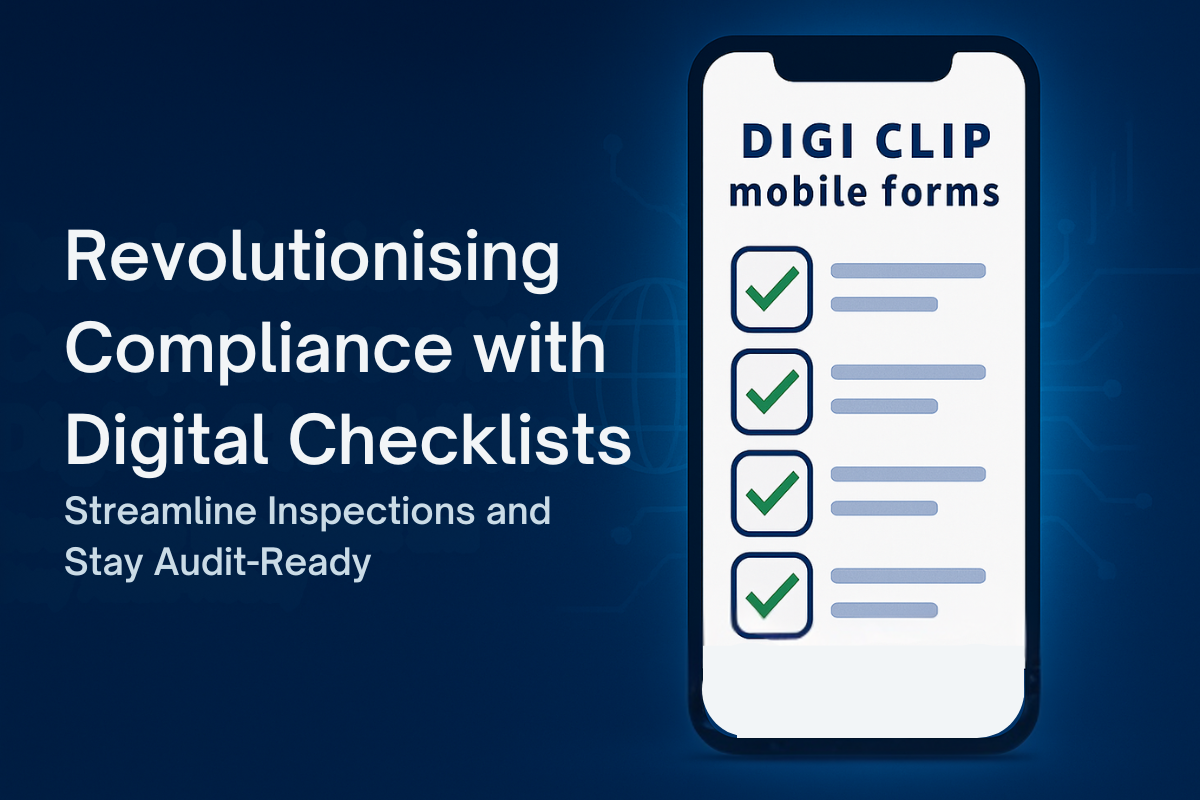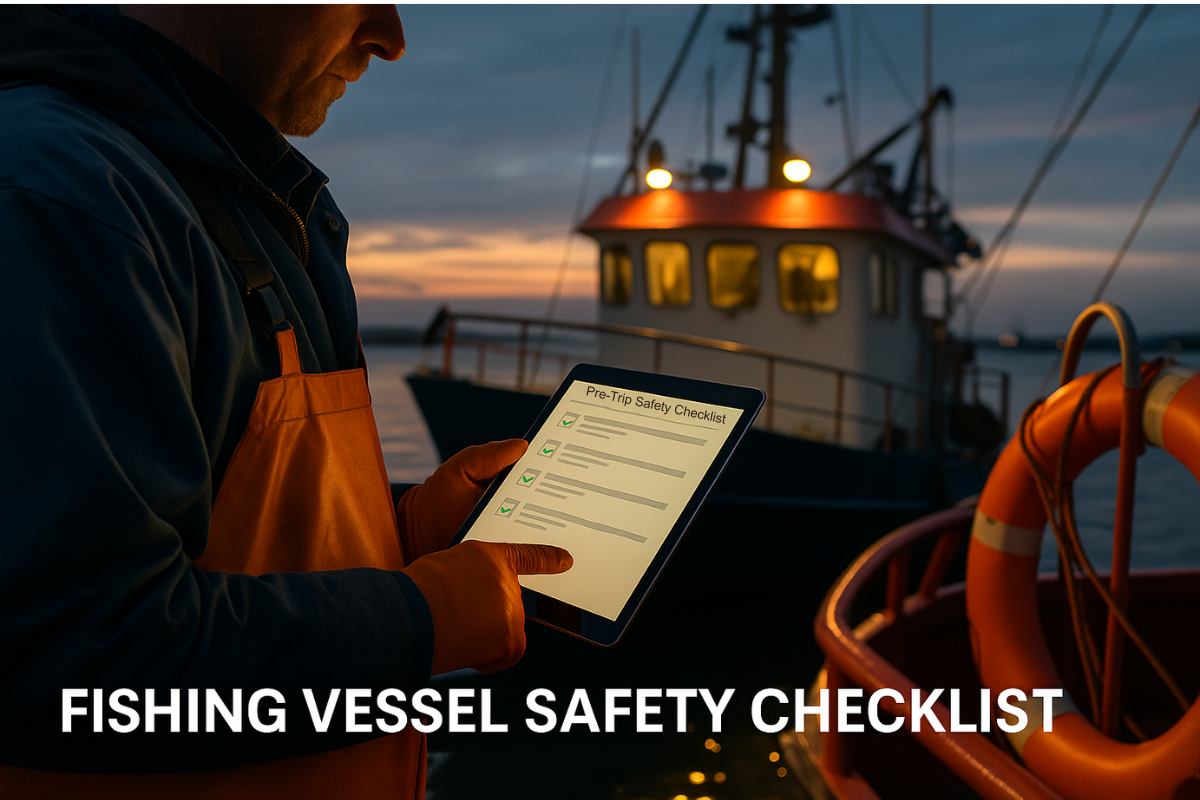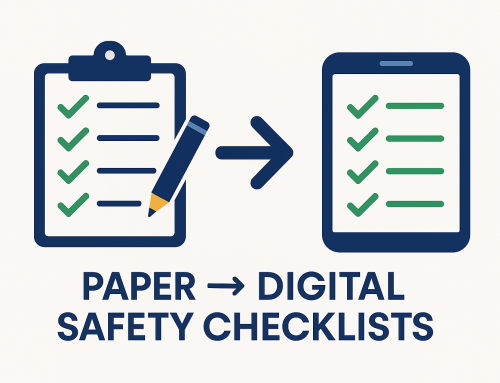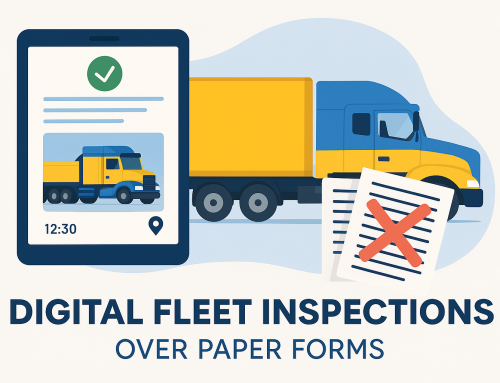Fishing Vessel Safety Checklist: How Digital Checklists Keep Local Fleets Safe
A fishing vessel safety checklist is the frontline control that keeps crews, catch, and vessels safe—especially in tough conditions and time‑critical departures. When checklists live on paper, steps get missed, photos go missing, and audit evidence is hard to find. Digitising your checklist process with DIGI CLIP makes every pre‑departure, post‑return, and six‑monthly inspection consistent, evidenced, and audit‑ready.
- ✓Standardise pre‑departure and post‑return checks with mandatory evidence (photos, comments, geo‑time stamps)
- ✓Run scheduled six‑monthly vessel inspections with reminders from the Action Register
- ✓Close out incidents faster with integrated reporting and follow‑up actions
- ✓Be audit‑ready with searchable records, timestamps, and PDF exports
Table of Contents
- Why a Fishing Vessel Safety Checklist Matters
- What to Include in a Fishing Vessel Safety Checklist
- Digitising Your Fishing Vessel Safety Checklist with DIGI CLIP
- Case Study: GTS Trawlers (Bellarine Peninsula, VIC)
- Paper vs Digital: Which Works Best Afloat?
- Compliance & Authoritative Guidance
- FAQs
- Conclusion & Next Steps
Why a Fishing Vessel Safety Checklist Matters
In commercial operations, a missed step can cost hours at sea—or far more. A robust, repeatable fishing vessel safety checklist helps skippers and crews verify critical equipment, communications, and safety gear before leaving the harbour and again on return. It also supports fishing fleet safety across multiple boats by standardising expectations and making trends visible across the fleet.
Digital checklists provide traceability: who checked what, when, where, and the evidence attached. They also reduce duplicate data entry and ensure vessel inspection checklist items become clear, actionable tasks—not just tick‑boxes.
What to Include in a Fishing Vessel Safety Checklist
- Hull & deck condition; hatches, scuppers, bilges
- Steering, propulsion, fuel lines, and leak checks
- Electrical systems, batteries, alternator output
- Navigation equipment (compass, GPS/plotter), lights, radar/AIS (if fitted)
- Communications: VHF, satellite (if fitted), emergency channels tested
- Safety gear: PFDs, EPIRB/PLB, flares, first aid kit, fire extinguishers
- Anchoring & mooring equipment; winches and deck machinery guards
- Refrigeration/ice plant checks; temperature logs and calibration
- Cargo & catch handling: stowage, securing, and hygiene
- Document checks: licences, certificates, induction/competency records
- Environmental controls: spill kits, waste & by‑catch handling
- Post‑return checks: defects noted, maintenance raised, housekeeping
Digitising Your Fishing Vessel Safety Checklist with DIGI CLIP
DIGI CLIP replaces paper with real‑time, mobile marine safety checklists that crews complete on phones or tablets—even offline. Each submission can include photos, comments, and geo‑time stamps, with automated alerts and an Action Register to ensure follow‑ups are closed out.
- Pre‑departure & post‑return digital forms with mandatory evidence
- Six‑monthly vessel inspections with reminders and dashboard visibility
- Incident and hazard reporting that links to corrective actions
- Catch handling temperature logs and calibration records in one place
- PDF exports for audits and insurer requests
Explore related reads:
- Digital Checklists for Workplace Safety
- Top Benefits of Digital Inspection Apps for Compliance
- From Paper to Digital: Compliance Tools for SMBs
- Industry‑Specific Digital Checklists: Customised Compliance Solutions
Case Study: GTS Trawlers (Bellarine Peninsula, VIC)
Operation: Local commercial fishing across the Bellarine Peninsula region of Victoria
Scope with DIGI CLIP: Pre‑ and post‑vessel inspections, incident reporting, marine safety checklists, six‑monthly vessel inspections, and temperature logs.
“We use DIGI CLIP daily in our business. It’s such a great and easy‑to‑navigate system for keeping our paperwork fully digital!”
— Mellisa Gallop, GTS Trawlers
- Standardised safety checks across vessels with photo evidence attached
- Defects funnelled directly into the Action Register for timely close‑out
- Consistent six‑monthly inspection cadence visible to management
- Temperature logging centralised for catch quality assurance
- Audit readiness improved with searchable reports and PDF exports
Paper vs Digital: Which Works Best Afloat?
| Criteria | Paper Checklists | Digital Checklists (DIGI CLIP) |
|---|---|---|
| Evidence capture | Manual notes, photos separate, easy to misplace | Photos/comments in‑form, geo‑time stamped, required fields |
| Follow‑up actions | Emailed or verbal; no single source of truth | Action Register assigns owners & due dates; status tracking |
| Audit readiness | Filing/admin burden; hard to search | Instant search & PDF export; consistent records |
| Offline operation | N/A | Works offline; syncs when back online |
| Fleet oversight | Fragmented across boats | Analytics & logs centralised for managers |
Compliance & Authoritative Guidance
Your commercial fishing vessel safety checklist should reflect relevant guidance and standards. Useful references include: Australian Maritime Safety Authority (AMSA) and Safe Transport Victoria – Marine Safety. Aligning your vessel safety checklist for fishing boats to recognised expectations strengthens both day‑to‑day safety and audit outcomes.
FAQs
What is a fishing vessel safety checklist?
How often should we run vessel inspections?
Can crews complete checklists offline?
How do digital checklists help with audits and insurers?
What about incident reporting and corrective actions?
Can we log catch temperatures and equipment calibration?
Conclusion & Next Steps
A disciplined, digital fishing vessel safety checklist helps protect your crew, catch, and business. With DIGI CLIP, you replace paper with consistent evidence capture, scheduled six‑monthly inspections, integrated incident reporting, and an Action Register that ensures nothing slips through the net.
If you’re ready to modernise fleet safety, boost audit readiness, and simplify reporting, start your free trial today.
About DIGI CLIP Mobile Forms
DIGI CLIP is a mobile checklist and inspection app that simplifies safety, compliance, and operational reporting. Designed for industries like transport, warehousing, agriculture, construction—and commercial fishing—DIGI CLIP replaces paper forms with real‑time digital checklists. Built‑in photo capture, automated alerts, geo‑time stamping, and an Action Register ensure nothing gets missed.
Why Try DIGI CLIP? Because safety actions don’t count if you can’t prove them. Start your free trial—no credit card needed—and see how simple compliance can be.








Leave A Comment